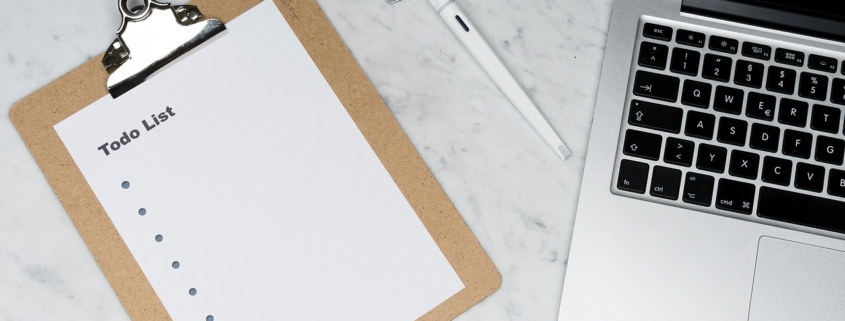Couples Rehab Preparation Checklist
Making the decision to enter rehabilitation as a couple represents one of the most challenging yet potentially transformative choices you’ll make together. When addiction affects a relationship, it creates a unique set of challenges that often requires specialized treatment addressing both individual recovery needs and relationship dynamics. This comprehensive guide aims to walk you through everything you need to know and do before embarking on this journey of healing together.
The path to recovery is rarely straightforward, especially when two people are involved. According to the Substance Abuse and Mental Health Services Administration (SAMHSA), relationships where both partners struggle with substance use face unique challenges but also present special opportunities for mutual support and growth. Recent studies suggest that couples who recover together and actively support each other’s sobriety have significantly improved long-term outcomes compared to those who pursue recovery separately.
This preparation checklist will help ensure you’ve considered all aspects of this important transition—from practical matters like choosing the right facility and handling finances to emotional preparations and relationship considerations. By thoroughly preparing for couples rehab, you’ll be setting a solid foundation for your journey toward lasting recovery and a healthier relationship.
Understanding Couples Rehabilitation
Couples rehabilitation represents a specialized approach to addiction treatment that recognizes the profound impact relationship dynamics have on substance use and recovery. Unlike traditional individual treatment models, couples rehab treats the relationship itself as an integral part of the recovery process.
At its core, couples rehab operates on the understanding that addiction is often intertwined with relationship patterns. Dr. Emily Thompson, addiction psychiatrist at the Center for Relationship and Recovery, explains: “When two people in a relationship struggle with substance use, they often develop interactive patterns that inadvertently maintain the addiction. Treating them together allows us to address these dynamics directly.”
Couples Rehab programs typically incorporate elements of traditional addiction treatment—detoxification, individual therapy, group support—while adding specialized couples therapy components. These may include:
- Behavioral Couples Therapy (BCT), which has shown effectiveness rates 30% higher than individual treatment alone
- Communication skills training specific to sobriety support
- Shared recovery planning and relapse prevention strategies
- Rebuilding trust exercises
- Conflict resolution techniques that don’t rely on substances
This approach isn’t suitable for every situation, particularly in cases involving domestic violence or when one partner remains actively resistant to treatment. However, for couples committed to recovery and their relationship, integrated treatment offers unique advantages.
Common misconceptions about couples rehab include beliefs that it always keeps couples physically together throughout treatment (many programs include both joint and separate components) or that it’s only for couples where both partners have substance use disorders (many programs work effectively when only one partner has a diagnosis but the relationship is affected).
Assessing Readiness for Couples Rehab
Before committing to couples rehabilitation, it’s essential to honestly evaluate whether both of you are truly ready for this challenging process. Successful treatment requires not just a willingness to address substance use issues, but also a commitment to examining relationship dynamics that may contribute to addictive behaviors.
Consider these signs of readiness:
- Both partners acknowledge there’s a problem requiring professional help
- Both individuals demonstrate willingness to participate actively in treatment
- Both partners express commitment to the relationship beyond the addiction
- Each person shows some capacity to consider their own contribution to relationship patterns
- Both individuals can identify at least some personal goals for recovery
Different levels of motivation are common and don’t necessarily mean couples rehab won’t work. Maria and Thomas, who completed a couples program in 2023, shared: “I was definitely more hesitant than my wife. She had already been researching programs while I was still questioning whether we needed that level of help. What ultimately convinced me was a consultation where the counselor helped me see how our relationship would continue deteriorating without intervention.”
Ask yourselves these assessment questions:
- Can we discuss our substance use honestly without immediately blaming each other?
- Are we both willing to examine how our relationship dynamics might contribute to continued use?
- Can we commit to the uncomfortable process of change, even when it feels easier to fall back into old patterns?
- Are we able to envision a relationship that doesn’t revolve around substance use?
- Can we support each other’s recovery even while working on our own?
Codependency—where partners become excessively emotionally reliant on each other in unhealthy ways—requires special consideration. Many couples entering rehab have developed codependent patterns, with enabling behaviors that unintentionally perpetuate addiction. Quality couples programs specifically address these dynamics rather than reinforcing them.
Choosing the Right Facility
Finding the right treatment center is crucial for successful couples rehabilitation. Not all facilities offer specialized couples programs, and among those that do, approaches and accommodations vary significantly.
Essential Features to Look For
When researching potential treatment centers, prioritize these elements:
- Dedicated couples programming: Look beyond facilities that simply allow couples to attend the same program. Seek centers with structured approaches specifically designed for relationship recovery.
- Accommodation options: Some facilities allow couples to share living quarters, while others maintain separate housing but provide joint therapy. Consider which arrangement would best support your recovery.
- Dual-diagnosis capabilities: If either partner has co-occurring mental health conditions like depression, anxiety, or trauma, ensure the facility has expertise in treating these alongside addiction.
- Comprehensive therapy options: The most effective programs offer a mix of evidence-based therapies including Cognitive Behavioral Therapy (CBT), Behavioral Couples Therapy (BCT), and trauma-informed approaches.
- Family involvement opportunities: Programs that include sessions with extended family members can help rebuild broader support systems.
Questions to Ask Potential Treatment Centers
When contacting facilities, consider asking:
“Can you describe your specific approach to couples in recovery?” “What percentage of your staff has specialized training in relationships and addiction?” “What does a typical day look like for couples in your program?” “How do you balance individual recovery needs with relationship work?” “Do you offer specialized programming for our specific substances of concern?” “What is your approach when one partner experiences a setback or craving?” “What aftercare support do you offer specifically for couples?”
Understanding Payment and Insurance
Couples rehabilitation often presents unique financial considerations. Some insurance plans may cover treatment for both partners if each has a diagnosed substance use disorder, while others might cover only one person’s treatment. During your research:
- Contact your insurance provider specifically about couples treatment coverage
- Ask facilities about sliding scale options, payment plans, or scholarships
- Inquire whether the facility can bill insurance for individual components of treatment
- Consider whether you qualify for FMLA protection for treatment time
- Investigate whether your employer’s EAP program offers any coverage or assistance
Lauren and James, who completed couples rehab in 2022, shared: “We initially assumed our insurance wouldn’t cover couples treatment, but we discovered that while they wouldn’t cover the relationship therapy components, they would cover the individual addiction treatment portions for both of us since we both had diagnoses. This made a significant difference in our out-of-pocket costs.”

Practical Preparation Checklist
Proper practical preparation can significantly reduce stress and allow you to focus fully on recovery once treatment begins. This comprehensive checklist covers essential documents, financial arrangements, and logistical considerations.
Documentation to Gather
Before entering rehab, collect:
- Insurance cards and benefit information: Including any pre-authorization paperwork
- Identification: Driver’s licenses, birth certificates, social security cards
- Medical records: Recent physical exams, medication lists, previous treatment records
- Legal documents: Powers of attorney, advance directives, court orders if applicable
- Financial documents: Bank account information, bill statements, credit card information
- Contact information: For family members, employers, healthcare providers
Financial Preparations
To ensure financial stability during treatment:
- Bill payments: Set up automatic payments for recurring bills
- Emergency fund: If possible, set aside funds for unexpected expenses
- Income protection: Apply for short-term disability benefits if eligible
- Budget planning: Create a budget for reduced income during treatment
- Tax considerations: Gather documentation if treatment costs will be claimed as medical expenses
- Insurance verification: Confirm coverage details and out-of-pocket responsibilities
Logistical Arrangements
Consider these practical matters:
- Home care: Arrange for lawn maintenance, mail collection, and security checks
- Pet care: Secure boarding, in-home care, or temporary adoption
- Childcare: Make comprehensive arrangements for children including legal temporary guardianship documents if needed
- Vehicle maintenance: Consider whether vehicles need to be stored or maintained
- Plant care: Arrange for watering or temporary relocation of houseplants
- Food and perishables: Clear refrigerator of perishables before departure
Packing Essentials
Most facilities provide guidelines, but generally bring:
- Clothing: Comfortable, weather-appropriate items, typically for 7-10 days with laundry facilities available
- Personal care items: Non-alcohol-based hygiene products (many facilities restrict products containing alcohol)
- Medications: In original prescription bottles with current labels
- Identification and insurance cards: Keep copies separate from originals
- Limited cash: Small amounts for incidental expenses
- Comfort items: Photos, journal, appropriate books (check facility restrictions)
- Contact information: Written lists of important phone numbers and addresses
Technology Considerations
Facilities vary widely in their technology policies:
- Device restrictions: Many centers restrict smartphone access, particularly in early treatment
- Communication protocols: Understand when and how you’ll be able to communicate with family
- Social media management: Consider temporarily deactivating accounts or appointing someone to manage them
- Work communications: Set up appropriate out-of-office responses and designated contact people
Sarah and Michael, who completed couples rehab in late 2023, offered this advice: “We wish we’d spent more time setting up our home for our return. Coming back to a clean, organized space without reminders of our using days made a significant difference in maintaining the progress we’d made.”
Emotional and Relationship Preparation
The emotional preparation before entering couples rehab can be just as important as practical arrangements. Taking time to address feelings, expectations, and communication patterns before treatment begins can create a stronger foundation for the work ahead.
Setting Realistic Expectations
One of the most important emotional preparations is developing realistic expectations about the rehabilitation process:
- Understand that recovery isn’t linear: There will be breakthroughs and setbacks for both of you, often not synchronized
- Recognize that painful emotions will surface: Treatment involves examining difficult patterns and experiences
- Accept that relationship dynamics will be challenged: Effective treatment often requires questioning established roles and behaviors
- Acknowledge that recovery takes time: Sustainable change rarely happens quickly
Dr. Robert Chen, Clinical Director at Harmony Partners Recovery Center, emphasizes: “Couples often enter treatment expecting the rehab experience itself to fix everything. In reality, rehab is just the beginning of a longer journey. The real work continues after discharge, applying new skills in your daily life together.”
Communication Strategies Before Entering Treatment
The weeks before entering treatment offer a valuable opportunity to practice more open communication:
- Schedule dedicated conversation time: Set aside distraction-free periods specifically to discuss feelings about upcoming treatment
- Practice using “I” statements: Express concerns as “I feel…” rather than “You always…”
- Develop a pause strategy: Agree on a word or gesture that signals when either of you needs a moment before responding
- Write letters to each other: Consider writing letters expressing hopes for your recovery journey that you can read during treatment
- Create a relationship timeline: Identify key moments in your relationship, both positive and challenging, that may be relevant to your recovery work
Addressing Fears and Concerns
Almost everyone enters rehab with fears. Common concerns for couples include:
- Fear of discovering the relationship cannot survive sobriety
- Worry about being judged by treatment staff or other clients
- Anxiety about revealing painful secrets or behaviors
- Concern about becoming emotionally distant during individual work
- Fear that one partner may progress faster than the other
Discussing these fears openly before treatment begins can reduce their power. Consider creating a shared document where each of you lists your specific concerns, then discuss them together with an agreement to listen without judgment.
James and Elena, who completed a 90-day couples program, shared: “We were terrified that therapy would reveal we were only together because of our shared addiction. Instead, we discovered strengths in our relationship we’d forgotten about and learned how to build on those instead of our unhealthy patterns.”
Family and Social Considerations
The decision to enter rehabilitation as a couple affects not just the two of you but your entire social network. Thoughtful preparation regarding family, friends, and social connections can provide additional support for your recovery journey.
Discussing Rehab Plans with Children
If you have children, age-appropriate honesty is generally the best approach:
- For younger children: Simple explanations focusing on health and getting help often suffice—”Mom and Dad need to go to a special doctor for a while to learn how to be healthier and happier”
- For older children and teens: More detailed but still boundary-appropriate explanations about addiction and treatment may be needed
- For all ages: Reassurance about continued love, ongoing contact when possible, and detailed information about care arrangements is essential
Consider arranging for children to speak with a counselor who specializes in addiction’s impact on families. Many treatment centers can recommend appropriate resources.
Preparing Extended Family Members
Family reactions to your decision may range from relief to resistance. When informing family members:
- Be clear about your needs regarding privacy and information sharing
- Provide basic information about the treatment center and program
- Explain any family participation components of the program
- Set expectations about communication during treatment
- Request specific types of support that would be helpful
Some family members may benefit from connecting with support resources like Al-Anon Family Groups, which can help them understand addiction and learn healthy ways to support your recovery.
Managing Social Circles and Online Presence
Social considerations require thoughtful planning:
- Decide what to share: Consider which friends need to know about your treatment and what details you’re comfortable sharing
- Identify potential triggers: Recognize which social connections might make recovery more challenging
- Plan social media management: Consider whether to deactivate accounts, have someone monitor them, or post a generic absence message
- Prepare for questions: Develop simple responses for inevitable questions upon your return
- Identify sober support: Begin researching sober social activities and groups in your community for your return
Maria, who attended couples rehab with her partner in 2023, shared: “We decided to be selective about who we told beforehand. For close friends, we were honest about entering rehab together. For acquaintances and colleagues, we simply said we were taking time away for health reasons. This approach worked well for us—it provided privacy but also allowed our closest friends to support us.”
Post-Rehab Planning (Before You Go Home)
While it might seem premature to plan for life after rehabilitation before you’ve even begun treatment, preparing for your return home can significantly improve your chances of maintaining the progress you’ll make in rehab.
Creating a Supportive Home Environment
Before leaving for treatment, consider:
- Removing substances and paraphernalia: Thoroughly clean your home of all alcohol, drugs, and related items
- Identifying and modifying trigger spaces: Rearrange or redecorate areas strongly associated with substance use
- Creating recovery-friendly spaces: Designate areas for meditation, journaling, or connecting as a couple
- Addressing sensory triggers: Change scents, sounds, or visual elements that might trigger cravings
- Safety-proofing for early recovery: Remove items that previously facilitated substance use (certain glassware, specific music, etc.)
Carlos and Jennifer, one year into recovery after couples rehab, advised: “We completely rearranged our living room where we used to drink together every night. Different furniture, different layout, different everything. It helped break the automatic association between that space and drinking.”
Researching Aftercare Options
Effective couples treatment includes significant aftercare planning within the program, but doing preliminary research before entering treatment gives you a head start:
- Couples therapy resources: Find therapists specializing in both relationships and addiction
- Support group options: Research both individual groups (AA, NA, SMART Recovery) and couples or family-focused groups
- Sober activities: Compile a list of substance-free activities and events in your community
- Continuing care programs: Investigate intensive outpatient or day treatment options for ongoing structured support
- Digital resources: Identify apps and online communities that support couples in recovery
Setting Up Support Systems
Before entering treatment:
- Identify accountability partners: Beyond each other, find trusted individuals who can provide objective support
- Create communication plans: Develop protocols for discussing cravings or concerns with each other
- Establish boundaries with enablers: Begin planning how to handle relationships that previously supported substance use
- Design emergency protocols: Create a written plan for handling potential crises or relapse risks
- Schedule initial post-treatment activities: Book initial therapy appointments and support group attendance
Dr. Lisa Whitfield, addiction specialist, emphasizes: “The transition from the structured environment of rehab back to home life is when couples are most vulnerable. Having concrete plans and support mechanisms already established can make this transition significantly smoother.”
The Journey Ahead: What to Expect in Couples Rehab
Understanding what typically happens during couples rehabilitation can help reduce anxiety and allow you to engage more fully with the process.
Treatment Structure and Phases
Most couples rehabilitation programs follow a general progression:
1. Assessment Phase (Typically 3-7 days)
- Comprehensive individual evaluations for both partners
- Medical assessments and detoxification if needed
- Preliminary couples assessment
- Development of individual and relationship treatment plans
2. Early Treatment Phase (Weeks 1-2)
- Primarily focused on individual stabilization and education
- Introduction to recovery concepts and tools
- Significant individual therapy with limited couples sessions
- Beginning exploration of relationship patterns
3. Intensive Treatment Phase (Weeks 2-6)
- Balanced focus on individual recovery and relationship dynamics
- Regular couples therapy sessions alongside individual work
- Identification of relationship patterns that reinforce substance use
- Development of communication and conflict resolution skills
- Addressing co-dependency and boundary issues
4. Integration and Planning Phase (Final weeks)
- Synthesis of individual recovery plans with relationship goals
- Family sessions when appropriate
- Relapse prevention planning as individuals and as a couple
- Comprehensive aftercare planning
- Transition preparation
Eliza and Marcus, who completed couples rehab in early 2024, shared: “The rhythm of individual work alongside couples sessions was crucial. We needed space to work through our personal issues while also learning how to function differently together. The balance evolved throughout our stay as we progressed.”
Common Therapeutic Approaches
Effective couples rehabilitation typically integrates multiple therapeutic modalities:
For Individual Recovery:
- Cognitive Behavioral Therapy (CBT)
- Dialectical Behavior Therapy (DBT)
- Motivational Enhancement Therapy
- Trauma-informed therapies like EMDR when indicated
- Mindfulness and stress reduction techniques
For Relationship Recovery:
- Behavioral Couples Therapy (BCT)
- Emotionally Focused Therapy (EFT)
- The Gottman Method for couples
- Communication skills training
- Attachment-focused interventions
For Combined Recovery:
- Recovery Contracting (formal agreements supporting sobriety)
- Shared mindfulness practices
- Mutual aid facilitation
- Recovery rituals development
- Vulnerability and intimacy rebuilding exercises
A Typical Day in Couples Rehab
While schedules vary by facility, a typical day might include:
Morning:
- Individual wellness activities (meditation, exercise, journaling)
- Breakfast
- Community or group meeting
- Individual therapy or specialized group (separated)
Afternoon:
- Educational sessions on addiction and recovery
- Couples therapy session
- Skill-building groups (sometimes together, sometimes separate)
- Recreation therapy or physical activity
Evening:
- Dinner
- Support group meetings (12-step or alternatives)
- Couples homework or practice time
- Community activities
- Reflection and journaling
Couples Rehab: Taking the First Step Together
Making the decision to enter couples rehabilitation represents an extraordinary commitment—both to your own health and to your relationship. The preparation process might feel overwhelming, but breaking it down into manageable steps as outlined in this guide can make it more approachable.
Remember that couples who successfully navigate recovery together often report that their relationships emerge stronger, more authentic, and more fulfilling than before. The skills you’ll learn—honest communication, healthy boundary-setting, emotional regulation, and conflict resolution—benefit not just your sobriety but every aspect of your life together.
Dr. James Wilson, who has specialized in couples recovery for over 15 years, observes: “The couples who thrive in recovery are those who approach rehabilitation with humility, courage, and a willingness to reimagine their relationship beyond addiction. It’s challenging work, but I’ve witnessed remarkable transformations when both partners commit fully to the process.”
As you prepare for this journey, hold onto hope while embracing realism. Recovery isn’t linear, and there will be difficult moments alongside profound breakthroughs. By thoroughly preparing—practically, emotionally, and relationally—you’re already demonstrating the commitment that successful recovery requires.
If you’re considering couples rehabilitation, don’t wait for the “perfect time” to begin. Reach out to treatment professionals today to start the conversation about how specialized couples treatment might benefit your specific situation. The journey of recovery is challenging, but you don’t have to navigate it alone—and taking it together, with proper support, might make all the difference.
This article is intended for informational purposes only and does not substitute for professional medical or psychological advice. If you or someone you love is struggling with substance use disorders, please contact a healthcare provider or call the SAMHSA National Helpline at 1-800-662-4357.




